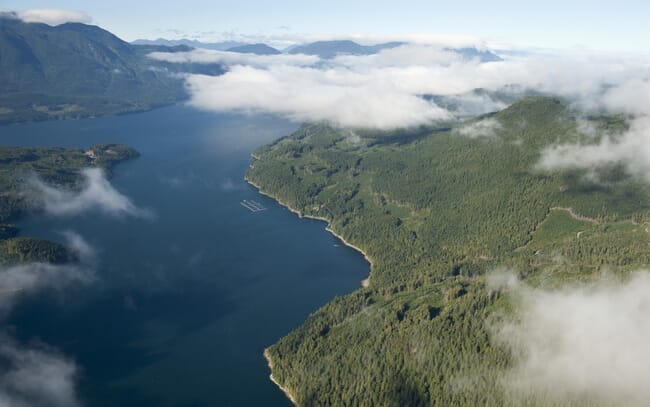
Since 2020, 40 percent of salmon farms have been closed by the DFO in British Columbia © BCSFA
The BC Salmon Farmers Association (BCSFA) learned this week that the Minister of Fisheries and Oceans Canada (DFO), the Honourable Joyce Murray, is proposing the further removal of salmon farms in British Columbia after recently closing 40 percent of existing farms since 2020.
“A decision like this will result in the loss of thousands of jobs, trample Indigenous Rights, and leave businesses who support the industry scrambling to survive,” said Brian Kingzett, executive director of the BC Salmon Farmers Association, in a press release.
He added: “This decision is not based on any credible science, including DFO’s own peer-reviewed studies, and is not supported by the many First Nations who want to continue salmon farming in their waters. The closure of salmon farming will decrease Canada’s local food supply, forcing Canada to import salmon from other countries to meet the needs of Canadian consumers at a significant price increase. The plan will also take away the ability of BC’s rural, coastal communities to participate in Canada’s Blue Economy.”
The BCSFA believe that any transition plan that does not consider the socio-economic impacts on the communities that rely on salmon farming, the sector’s contribution to the Blue Economy, climate change, and food security will fail.
Kingzett added: “The entire transition framework engagement process has been flawed from the start. Minister Murray has not followed her own engagement plan, and we have constantly seen shifting deadlines and goalposts affecting the ability of participants to engage effectively, including the First Nations and salmon farming organisations. In addition, we have had to deal with constantly changing processes, deliverables, and extremely challenging deadlines.”
“Any proposed further reduction, which some may claim is a reasonable compromise, could signal the closure of the entire sector,” concluded Kingzett.




